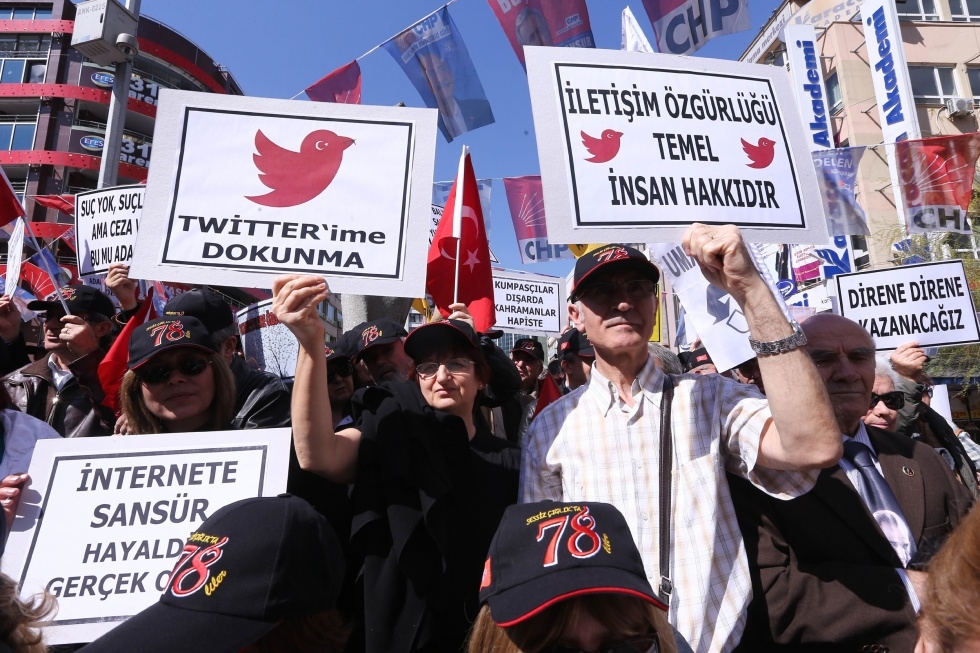Court strikes down YouTube ban as Twitter eyes Turkey office opening

Turkey has continued to send mixed messages over social media, with debate over the fate of Twitter and YouTube still dominating headlines.
On Wednesday Ankara reversed a ban on online video sharing site YouTube which was blocked in Turkey on March 27, following a leak of a compromising conversation between leading Justice and Development Party (AKP) figures apparently discussing launching a false flag operation in Syria.
The reversal follows on from revelations by Turkey's communications minister Lütfi Elvan late Tuesday that management at microblogging site Twitter has been in contact with Turkish officials over opening an office in the country, despite Twitter also having been blocked.
"Representatives from Twitter are going to visit Turkey this month to have discussions with the Information and Communications Technologies Authority regarding a Turkey office," Elvan told reporters at the Turkish parliament.
The same day, however, Turkish Prime Minister Tayyip Erdogan come out in full support of the ban, telling a parliamentary meeting of his AKP Party that the reversal “should be corrected”, Reuters news agency reported. ““The constitutional court’s ruling on Twitter did not serve justice," Erdogan said while adding that “Twitter and YouTube should abide by Turkish law as they do to laws of other countries.”
The government blocked Twitter on March 20 after the social media site was used to spread audio recordings that allegedly implicated Erdogan and his inner circle in a corruption scandal. Shutting down the site ahead of crucial March 30 local elections sparked condemnation at home and abroad and earned Turkey a strong rebuke from rights groups and its Western allies. Despite the international furore, Erdogan's AKP Party won a decisive victory in the vote.
On April 2, Turkey's Constitutional Court ruled the Twitter ban violated free speech and ordered the communications ministry and telecoms authority to reverse it "with immediate effect". The ban quickly caused fissures even within the ruling party, with President Abdullah Gul quickly stressing that the blockade would "not last long."
The Ankara district court meanwhile orderd YouTube to be unblocked on April 4, although it ruled that 15 videos deemed a danger to national security stay blocked. A higher court, however, overruled this decision by saying that the site could stay blocked as long as it continued to host the 15 videos.
Following the controversial decision, Foreign Minister Ahmet Davutoğlu drew a firm destinction between the Twitter and YouTube controversies, stressing that they were two seperate issues.
“The Twitter ban is related to privacy, while the ban on YouTube is a matter of national security. It should not be perceived as a restriction of freedom,” Davutoğlu said.
Social Media Reactions
Reaction to the decision on social media included users pointing out it was possible to get around the block on YouTube, while Turkey analyst Laura Wells responded by explaining that not everyone knew how to do this so the decision had restored equality:
Middle East Eye propose une couverture et une analyse indépendantes et incomparables du Moyen-Orient, de l’Afrique du Nord et d’autres régions du monde. Pour en savoir plus sur la reprise de ce contenu et les frais qui s’appliquent, veuillez remplir ce formulaire [en anglais]. Pour en savoir plus sur MEE, cliquez ici [en anglais].

